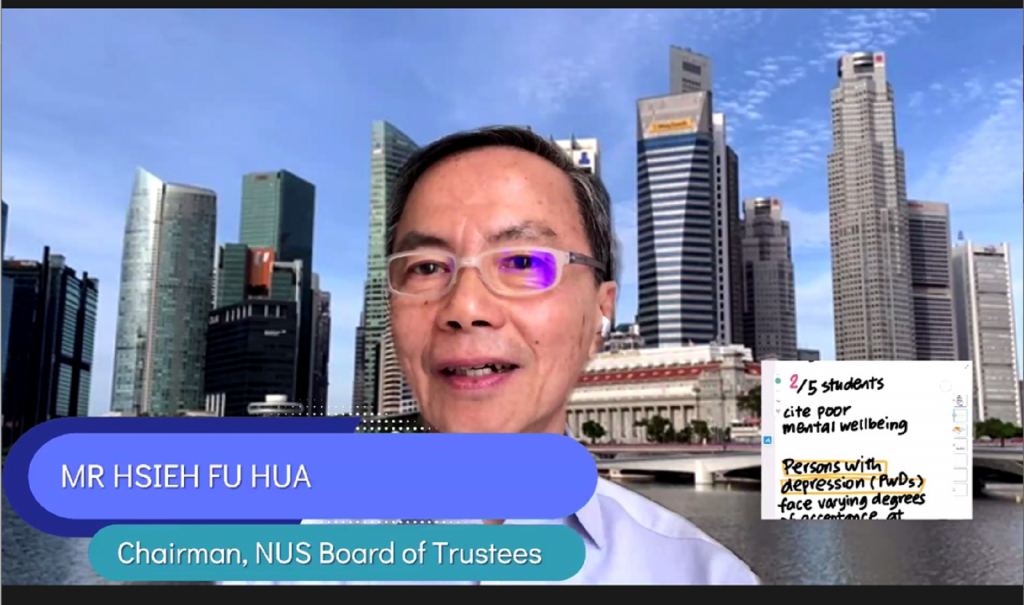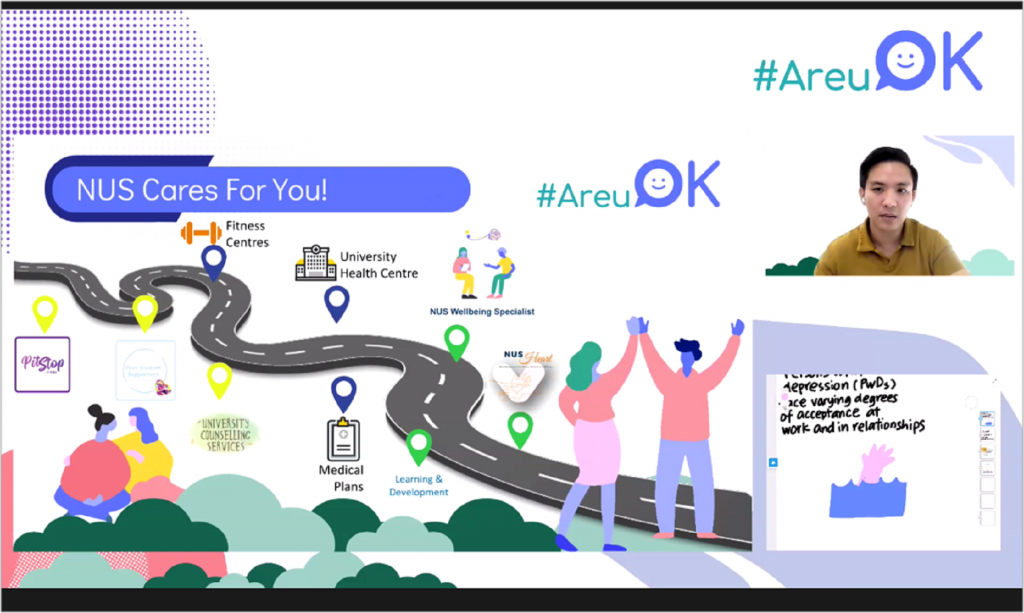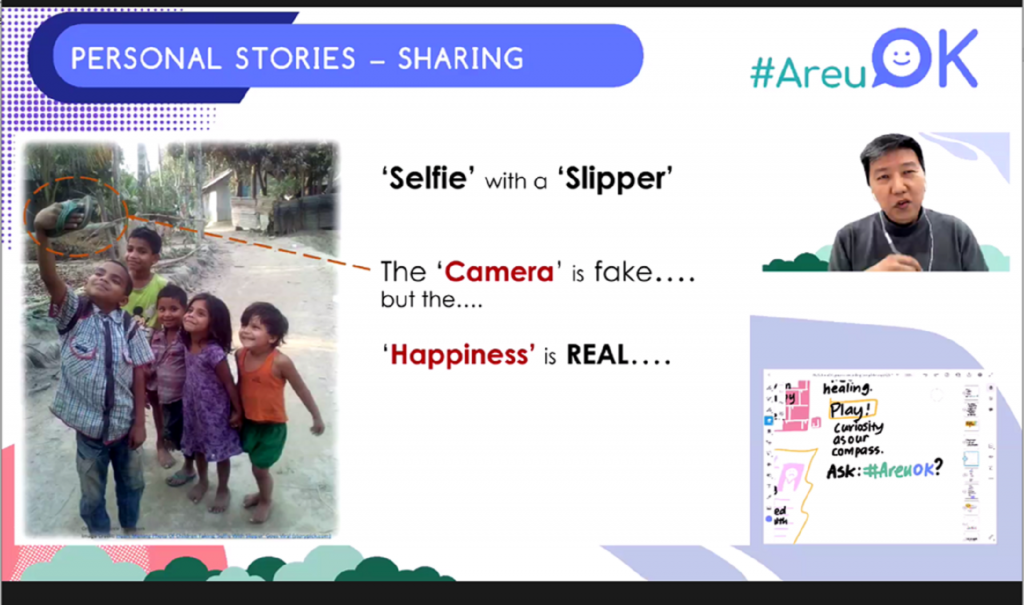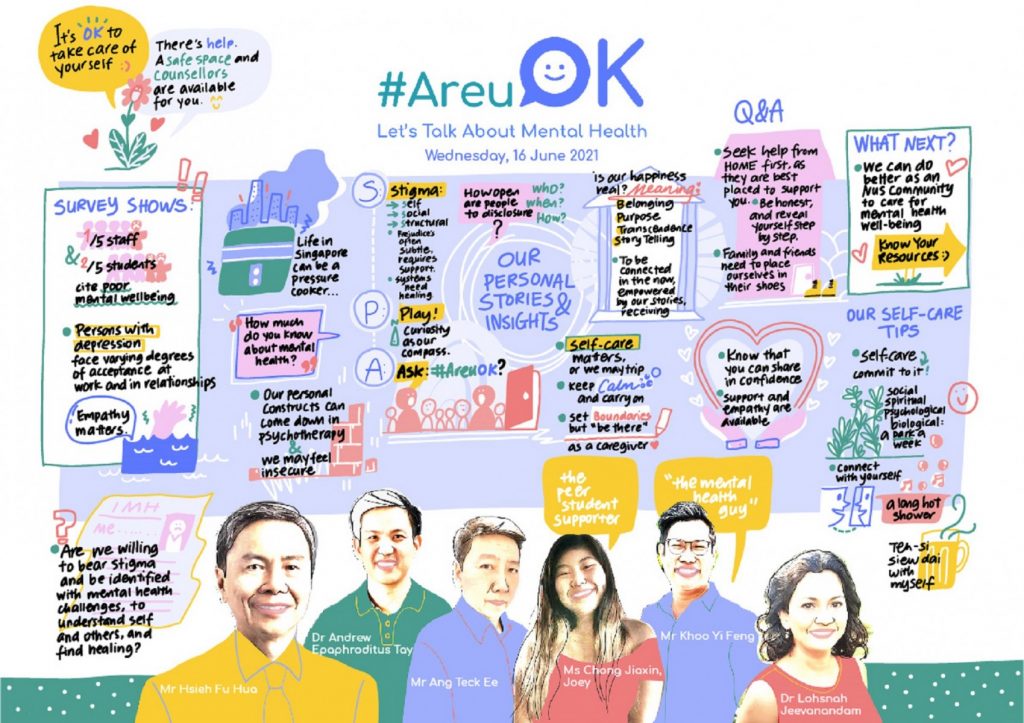Embracing mental health: It’s okay to not be okay

Everyone has mental health issues, it just depends on which end of the spectrum they are at, reflected NUS Chairman Mr Hsieh Fu Hua during the #AreuOK – Let’s Talk About Mental Health webinar on 16 Jun.
After witnessing his children’s challenges during their teenage years, and personally experiencing psychotherapy sessions, Mr Hsieh understood first-hand that going within through self-inquiry, and looking externally for support were key in the mental health journey.
“The psychotherapy sessions knocked away inner constructs and walls built over the years,” shared Mr Hsieh candidly during his keynote speech. He added that individuals who experience mental health issues inadvertently feel an erosion in their level of self-confidence; and noted the social stigma associated with declaring such issues.
Mr Hsieh cited regular meditation practices, and efforts over the years to cultivate a stronger and more resilient mind, as factors which helped him to move past life challenges.

The #AreuOK campaign
In December 2020, NUS launched the #AreuOK campaign to drive awareness of mental health, and create an environment of empathy and inclusivity for the community. The campaign is spearheaded by the Health & Wellbeing (HWB) team and the Organisational Excellence Transformation Unit at the NUS Office of the President, in collaboration with various departments across the University.
Before the campaign was launched, an anonymous survey was conducted by the team to gain a deeper understanding of the NUS community’s perceptions on mental health. In his opening address, HWB Director Dr Andrew Epaphroditus Tay shared survey findings which showed that one in five staff, and two in five students across the University had cited poor mental wellbeing.

Empathy, support and the power of meaning
“There’s an ‘I’ in mental ill health and a ‘we’ in wellbeing,” proclaimed Mr Khoo Yi Feng, NUS alumnus (NUS Arts and Social Sciences) and Social Worker at Limitless, who is known to his friends as the ‘mental health guy’. He added that empathy and support for others are our two doses of ‘vaccine’ against mental illness.
“Attending to our deeper need for an intrinsic form of happiness, focusing less on what we have and more on what we are, may be the key in a world full of sensory distractions,” said Mr Ang Teck Ee, Senior Counsellor from University Counselling Services. He also shared the four pillars – Belonging, Transcendence, Story Telling and Purpose, from Dr Emily Esfahani Smith’s study on the power of meaning, as recommended points of focus in our lives.

Joey Chong, Year 3 NUS Arts and Social Sciences student noted that learning how to have boundaries, and not put another person’s wellbeing above your own, was an important lesson in her role as a Peer Student Supporter.
“Instead of trying to solve others’ problems, just be there to help guide them to solve their own problems,” she said.
Summing up, Dr Lohsnah Jeevanandam said, “Let’s embrace our mental health as an individual, as a NUS community, as a society.”

This article was first featured on NUS News.

